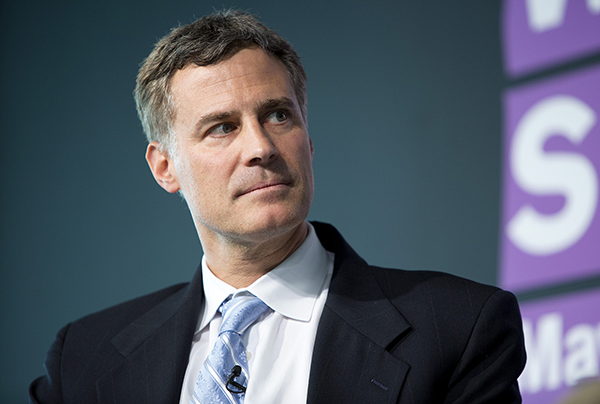
Alan B. Krueger Visual China Infographic
Alan B. Krueger, a labor economist at Princeton University who served as a senior adviser to the Democratic government, died at his home in Princeton, New Jersey, on March 16 at the age of 58. According to a statement issued by his family, the cause of death was suicide.
Princeton police said they were called to Kruger's home on the morning of March 16 and found mr. Kruger unresponsive.
Kruger's family said in a statement to Princeton University: "Alan M. Kruger said: "Alan Klugger said: "Alan Klugger said: "Alan Klugger It was a great sadness that Professor B. Kruger, our beloved husband, father, son, brother and Princeton professor of economics, ended their lives over the weekend. The family needed time and space to mourn and remember him. We encourage those who wish to honor Alan to contribute to the charity of their choice, rather than giving flowers. ”
On March 18, Obama expressed his condolences for Kruger's death in a statement. "When I asked Alan Kruger to be my chief economist in the White House, he already had a brilliant career both inside and outside the administration," Obama said. "He helped us plan for the worst financial crisis in 80 years during my first two years in office and succeeded in preventing chaos from turning into a second Great Depression." During his tenure as chairman of my Council of Economic Advisers, he helped us get the economy back to growth and continue to create jobs, reduce the deficit in a responsible way, and lay the groundwork for another rise in wages. Obama wrote: "Even if he corrects your mistakes, he will always maintain a smile and a gentle spirit." "That's why Allen became a truly nice guy and decent person."
Kruger made a presentation at Stanford University last week titled "Why Is Basic Global Income So Controversial?" on income distribution and labor market regulation, Reuters reported. " lecture.
Born in Livingston, New Jersey, Alan Kruger received his B.A. from Cornell University's School of Industrial and Labor Relations in 1983 and his Ph.D. in Economics from Harvard University in 1987.
Krueger has assisted two U.S. presidents. From 1994 to 1995, Kruger served as Chief Economist at the Department of Labor under President Bill Clinton. At the time, he was a young tenured professor at the age of 34. After returning to Princeton in 1995, Krueger said he would not return to politics.
But in late 2008, Krueger received a call from Mr. Obama's Treasury secretary, Mr. Geithner, who told him: "The economy is in free fall." Why don't you come to work at the Treasury and do important things? Krueger later recalled in an interview, "I couldn't say no to such a request." So, from 2009 to 2010, to help the Obama administration emerge from the worst recession since the Great Depression, Kruger made a comeback from Princeton University as assistant treasury secretary and chief economist for the U.S. Treasury. Obama later appointed him chairman of the White House Council of Economic Advisers, a position he held from 2011 to 2013. Mr. Obama has said Kruger is one of his most trusted economic policy advisers and a good friend of his.
Krueger, who began teaching at Princeton University in 1987 and has been teaching for more than three decades, has studied the impact of the labor market, particularly the minimum wage, and has pushed back the claims of many conservative critics that raising the minimum wage would not affect corporate employment.
Commenting on Krueger in a statement, Princeton University said: "Allen is considered a true leader in his field and is well known for his research and teaching. ”
As a representative of a new generation of economists, Krueger's economic research focuses on empirical thinking patterns, emphasizing data rather than theory. His research involves education, health care, the labor market, and terrorism, as well as more lighthearted and enjoyable topics such as rising prices for concert tickets.
Kruger is happy to share his academic achievements with the public. He has published What Are Terrorists: Economics and the Roots of Terrorism and Education, Myth and Measurement: The New Economics of the Minimum Wage, and Inequality in the United States: What Is the Role of Human Capital Policy? and other books.
From 2000 to 2006, he worked as a contributor to the New York Times' "Economic Scene" column.
Kruger's latest book, which will be published in June, is about the economics of the music industry, according to the New York Times.